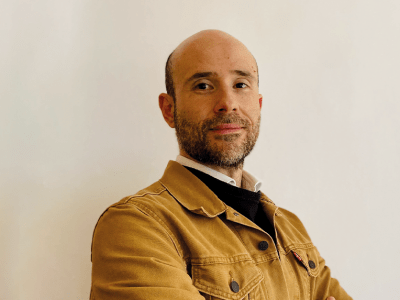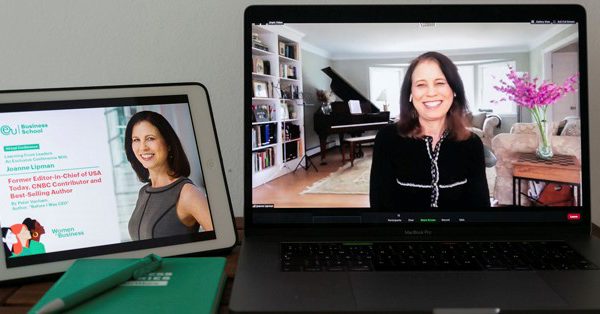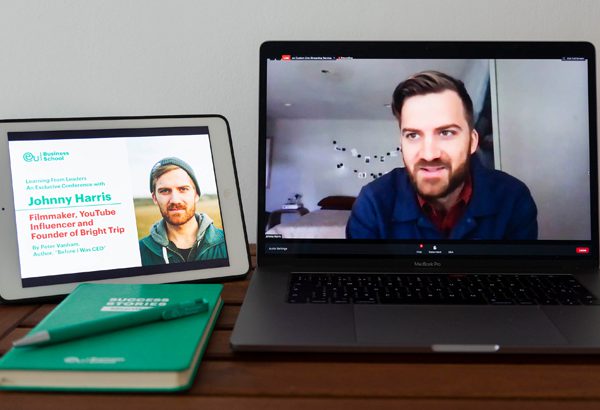Launching Your Career During a Pandemic With Natalie Batlle
About the Speaker
Natalie Batlle can be seen as the ideal candidate to advise students on how to launch a career in times of crisis. As a millennial, she began her career during a financial recession. Since then she has navigated an ever-changing business landscape as she progressed from intern to entrepreneur.
Natalie spoke to EU Business School having recently launched her business venture Juno House, a service which aims to connect female entrepreneurs and executives, and to support them in achieving a healthy work-life balance.
Her presentation covered the crisis skills you need to develop in order to survive and thrive in the current business climate. Natalie also emphasized the importance of purpose in guiding your career decisions.
5 Tips for Your Crisis Skills Toolkit
Drawing upon her own experiences, Natalie proposed the following principles for students who will be launching their career during a pandemic.
1. Follow Your Gut
Although Natalie obtained an enviable position working in Communications and PR for a glamorous agency in New York City, she knew deep down that her career objectives lay elsewhere. In a move that subverted expectations, lowered her salary and redirected her path, she returned to her hometown of Barcelona and began looking for work in the local startup scene.
The lesson she learned from this experience is that your instincts are often your best advisor. You shouldn’t be afraid to do something unexpected if your current situation is leaving you unfulfilled.
Having learned a great deal from her New York experiences, she was ready to apply her skills and knowledge in a different context. This is how she ended up working for Trip4Real, a Spanish start-up that was later sold to Airbnb.
2. Don’t Freak Out
When Trip4Real was sold to Airbnb, Natalie chose not to continue working with the company. Instead, she looked for new opportunities where she’d have a more senior position, a bigger budget and more visibility. Trip4Real was a tiny company of ten people and she was ready to operate on a larger scale.
This is when she was offered a dream job with another Spanish start-up. In this position, she had everything she wanted: the opportunity to travel, to represent the company at public events and to use her coordination skills. However, 90% of start-ups fail and this company was sadly one of them.
Natalie emphasizes the importance of not freaking out when plans fall through. When a start-up fails, it doesn’t necessarily mean the idea was bad. It certainly doesn’t invalidate the hard work of the people on the team. Instead of feeling dejected, she advises that you stay positive, consider what you’ve learned from the experience and use that to move on to the next opportunity.
3. Build Contacts
Although Natalie uses LinkedIn for a range of purposes, she says she has never been hired through the platform. Instead, she states that networking and building contacts has been key to her success. When she obtained positions in Spanish start-ups, it was always through people that she knew.
She acknowledges that during a pandemic it can be difficult to make these contacts. However, she recommends following companies of interest, keeping updated with their developments and attending any virtual events that they host. You can still look for mentorship opportunities and reach out to potential mentors in your field.
Through her network, Natalie met the CEO of Forcemanager and was subsequently recruited to handle international public relations for the firm. This shows that it pays to build relationships and make your face known amongst key players in your industry of interest.
4. Be Adaptable and Strategic
Natalie was hired to handle international public relations. However, it soon became evident that this wasn’t the best use of budget for Forcemanager. Instead, she was asked to oversee a new product line. This was a huge change of direction for Natalie as she’d previously focused on branding and communications, creative partnerships and public relations.
However, Natalie had learned a lot about business from her previous experiences working with startups. That meant she had a wealth of knowledge to draw upon in her new position. She agreed to switch, knowing that this was an opportunity to learn more about business operations without necessarily having to study the subject at university.
This adaptable attitude is important for young people launching their career in a business climate that’s subject to frequent, unexpected changes. If you’re willing to pivot, you will be free to access more opportunities. It was also a strategic move for Natalie: she had entrepreneurial aspirations and she felt this experience could be valuable at a later date.
5. When it’s Time, Take the Leap
Natalie has always been passionate about advancing female entrepreneurs and executives. Itsa cause that she cares deeply about and she felt it was her purpose. When she became a mother, she realized the need for supportive services that empowered women in business to enjoy a better life-work balance.
Natalie has been pregnant with her second child during the pandemic. She knew this was a good time to launch her business idea, Juno House. Although she acknowledges that this new stage of her career, entrepreneurship, is likely to be the most challenging yet, it was clear that the time was right to take the leap. She had learned what she needed to know in order to start her business.
It’s tempting to stay safe during times of crisis. However, sticking with safety can result in stagnancy. Many industries are growing at the moment as a result of the unique circumstances of the pandemic, so there are opportunities available. Take the leap and don’t let them pass you by.
3 Questions to Ask Yourself Before Accepting a Position
Natalie reminded students that millennials spend an average of two years in each job before they move on. This provoked the question, how do you know if it’s time to accept another opportunity? Her presentation offered this checklist of questions to ask yourself before you say yes:
- Will I learn something new? Even if the position offers less security or less money, it may offer invaluable lessons that make it worth it.
- Will this motivate me to give 100% every day? If an opportunity really inspires you, it’s always worth pursuing.
- Does the company support my values? When your work is aligned with your values, it is more fulfilling. If it’s not, you will lose motivation quickly.
The Importance of Purpose
A key message of Natalie’s presentation was that students should try to find their purpose. She admitted that this could be a complicated process. However, the end goal of every career should be to work for something you truly care about. This, above everything else, is what will make your work meaningful.










